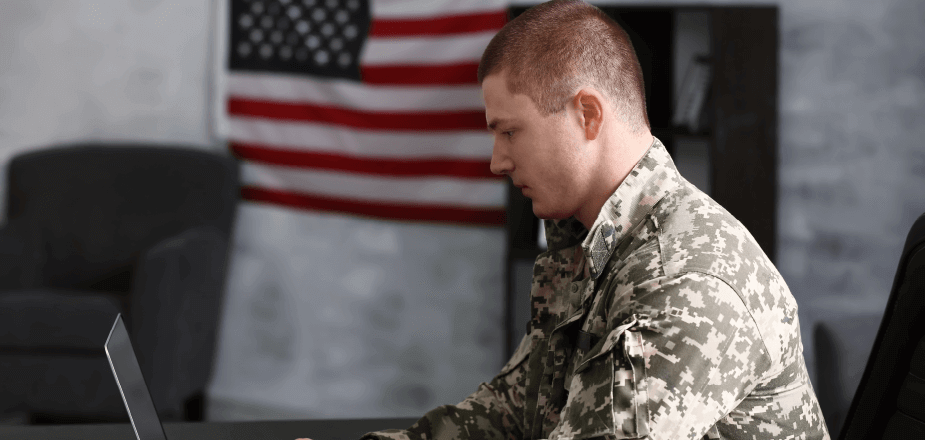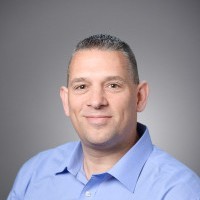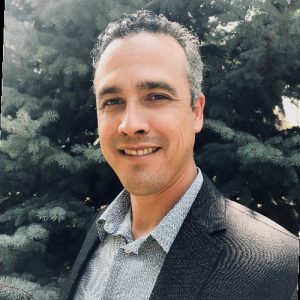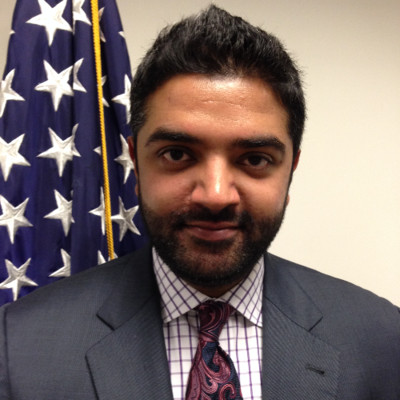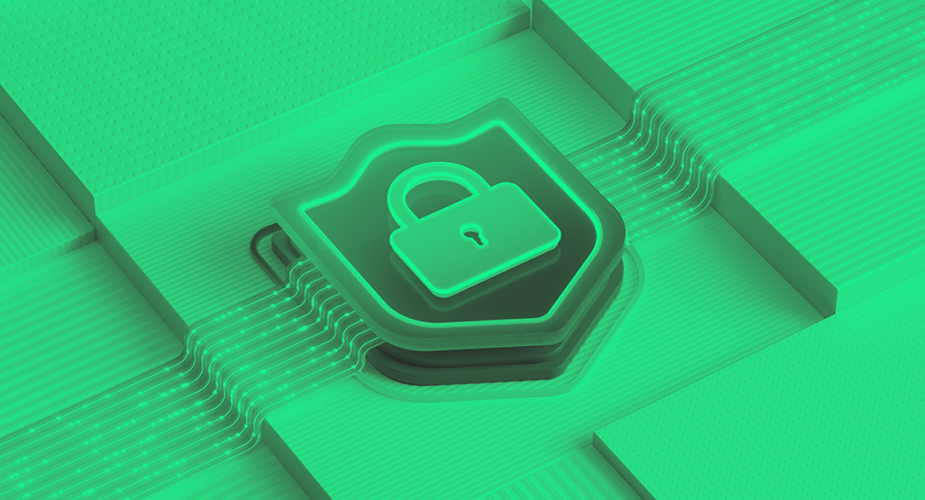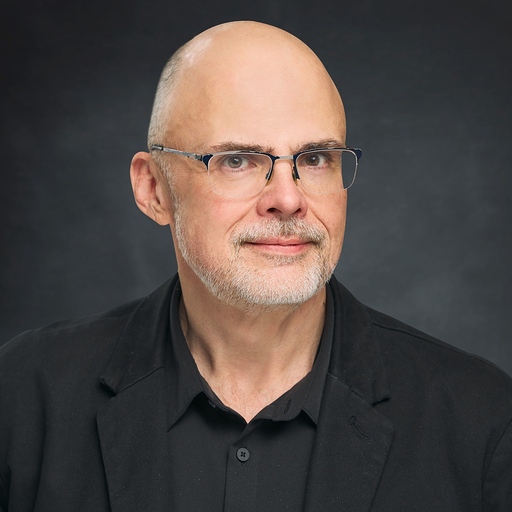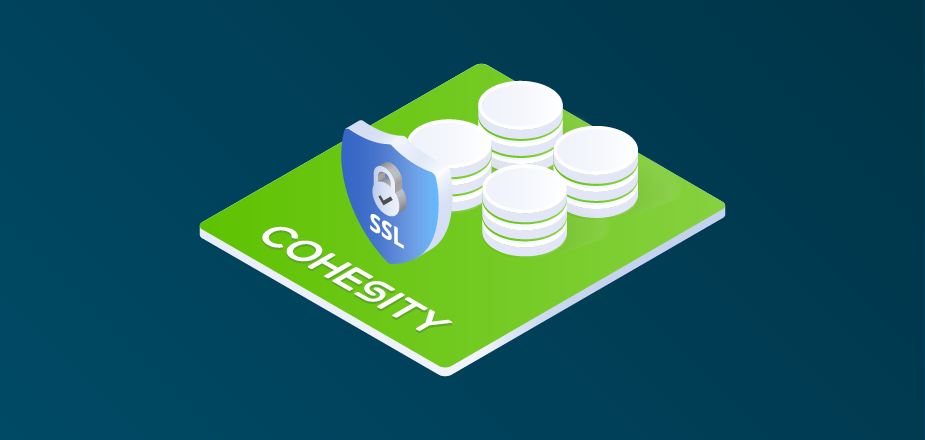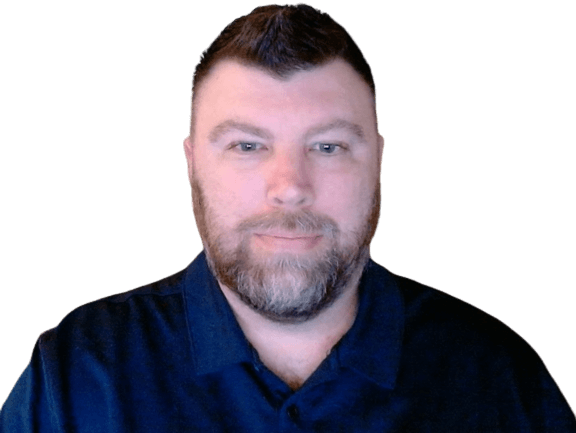National Military Appreciation Month is celebrated each May as a symbol of unity, and to honor current and former members of the US Armed Forces. We’d like to say Thank You to everyone who has served, including their families, for their support, resilience and sacrifice.
Cohesity veterans have served over 125 combined years in the U.S. Military so we decided this was a good time to spotlight some of the Cohesity experts whose career journeys included serving in the armed forces. I sat down with three of them last week to hear about their unique stories.
How to Go from Special Ops to Supporting Special Ops — Richard Campbell’s Story
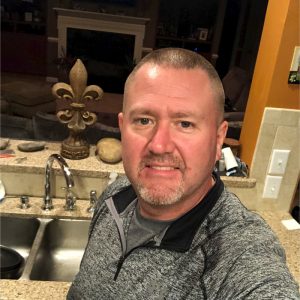
When Cohesity Senior Systems Engineer Richard Campbell was 18 years old, he joined the Navy. Part of the reason he signed up was because his stepfather was a former Marine, but most of it was because he wanted to be a Navy SEAL, participating in small-unit special ops missions. His Navy career started with hospital corpsman school, and when he completed that, he went to the Marine air station at Cherry Point, NC, for Marine combat training and then amphibious reconnaissance school. Amphibious reconnaissance is a form of preliminary investigation into whether near shore areas bordering a coast or ocean areas can be penetrated or used for main landing assaults.
Active Duty: Special Ops, 3 Computers, a Switch, and a Book
After completing his training, Campbell was stationed as a special ops corpsman on board the Nassau, which is best known for supporting Operations Desert Shield and Desert Storm. It was also the flagship for Commander, Amphibious Task Force and the 4th MEB’s Commanding General. For three years or so, he was part of the Nassau’s operations and missions for Desert Shield, Desert Storm, Mogadishu, and Somalia, putting what he had learned in training to good use. But that wasn’t all he did aboard the ship.
A unique attribute of the Marine Corps and the Navy is collateral duty, which is taking on tasks that are outside of main roles or responsibilities. Collateral duty has a community service feel because people are stepping up to help others accomplish things that need to be done for the good of all. Throughout Desert Shield and Desert Storm, while onboard the Nassau, Campbell’s collateral duty was IT and tech. He was responsible for getting IT systems up and running. “I had three computers, a small network switch, and a book. I read the book, figured out how to put it together, and it worked,” Campbell said.
After his time on the Nassau, he went to the Branch Medical Clinic at Little Creek Amphibious Base, where he also taught with the warfare training school for amphibious reconnaissance. All total, Campbell spent 9 1/2 years in active duty. “I loved every minute of it. I couldn’t think of doing a better thing,” he told me in his interview. “I think most people should have the opportunity to do something like this. It is definitely worthwhile.” he added. And if they don’t get that chance? “The important thing is to support the military. Let those serving know how much you appreciate them for what they are doing. Recognize their service to this country and respect their intelligence and skills,” Campbell said.
Collateral Benefits
What was essentially Campbell’s “side hustle” while he was serving became his civilian career. With few opportunities open for a paramedic, other than as a volunteer, a friend encouraged him to take the IT and systems skills he had acquired as part of his collateral duty and use it to find work. Not many people had his networking skills, which made it easy for him to find work with companies like Cisco, IBM, EMC, and now Cohesity. “I have had the luxury of being able to work in the IT and tech industry while supporting the military at Cohesity and everywhere else I’ve worked. I’m helping them build better systems and improve communications so that fewer of our military members are put in harm’s way,” he explained.
Reflecting on his entire career at the end of our interview, Richard said that he was the only corpsman on the east coast who was also a surface warfare, air warfare, and special ops specialist; served in the Marine Corps; and was an FMF corpsman as well. “It’s the kind of thing that people tell me it’s not normal to do,” he said. “But it’s kind of like Cohesity. We’re changing the way things are done and that appealed to me so much because it’s what I’ve done for my entire career.”
How Tradition, Tech, and Teamwork Shaped an IT Career — Timothy Sandy’s Story
Timothy Sandy, Technical Operations Manager – Global Pursuit – at Cohesity, spent 4 years in active duty in the Air Force and another 11 years with the Air National Guard and Air Force Reserve. His interest in a military career was inspired by his father, who signed up for the Navy when he was 18. After Sandy’s father left the Navy, he joined the Air National Guard, where he served for 20 years, not as “weekend warrior,” but as an active guard reserve who was assigned to a specific squadron at a specific base.
In 1990, at age 18, Sandy joined the Air Force. He chose the Air Force because it, along with the Navy, offered more opportunities for technology training at the time. Sandy wanted the full military experience but he also wanted to be equipped with training, education, and skills that would serve him well after he left the military. “I was very mature for my age,” he told us in his interview. “It’s changed now, but back then, the Air Force was where you could convert what you did directly to a civilian career.”
Respect, Camaraderie, and Lessons Learned While Serving
In his 15 years in the military, Sandy spent one year recruiting and nine years working on aircraft avionics systems. In his final four years, he was a communications specialist, dealing with everything from networking, to desktop support, to crypto. Sandy told us that he enjoyed all of it. Because of his family life, he knew what it would be like, and he knew the benefits were worth the hard work that starts with basic training.
“The military builds you up as a team so that you respect and rely on the people next to you. After basic training, you work side by side with people who went through it with you, and there’s a camaraderie that comes from that shared experience,” Sandy explained. “You also learn valuable skills, along with organization and structure.” When asked what he would say to anyone interested in joining the military, without hesitation, he said, “Do it. Everyone can gain something good out of it, especially the ability to get along, work as a team, and other important lessons learned.”
Life after Air Force
Sandy’s instincts about parlaying the technology skills learned in the Air Force to civilian life were accurate. He spent 14 years as a government contractor, using the knowledge and skills he honed to relate to the people on his projects, and learning more about ex-military life. Sandy then worked as a VMWare or systems engineer at various companies, as well as a solutions engineer at VMWare itself. He came to Cohesity as a solutions engineer in 2019 and took on his current role earlier this year.
He ended the interview with an interesting fact and some advice. “Here’s something funny,” he announced. “In my time in the military, I never got to go to another country. I was always in the U.S. But as a civilian contractor, I did work overseas. For two and a half years, I worked in Iraq and Qatar, and I went to numerous countries, like Kuwait and Dubai, in the Middle East.”
His advice was for anyone who wants to show appreciation to those who have served during Military Appreciation Month or any other time. “It’s nice to hear that we are appreciated. But what I’d really like is for everyone to show more respect for the flag and this country. The freedom we enjoy now is because of those who are serving now and because of those who died protecting the country.”
How to Learn to Take Charge When No One Else Will — Roberto Osuna Baez’s Story
One day when Roberto Osuna Baez was in high school, he saw a few of his friends talking to a Marine Corps recruiter. He asked them about the conversation, they told him, and he decided he wanted to learn more. The recruiter shared the pros of joining the Marine Corps, including the GI Bill. He saw the Marine Corps as an opportunity to protect the freedom and liberty of U.S. citizens. He could also travel the world in exchange for college education benefits. With the encouragement of his friends and the recruiter and the promises of serving his country and getting an education, he signed up.
Baez had no idea what to expect. No one in his family had been in the military (although his brother joined after he did), so there were no traditions or histories to fall back on. In his conversation with me, he shared his memory of his first day in September 1996. “It was early, around 4 a.m., when my recruiter picked me up from home and drove me to the military entrance processing station. It was all kind of a blur and a long day to get into a bus to head down to San Diego to stand on the yellow footprints where it all began to take shape,” he said. “It ended up being like a strict job where you can’t be late, you must exercise, and you have to maintain your military proficiency with different weapons.”
The Marine Corps: Discipline, Schedule, Travel, and Trust
Baez told me that the Marine Corps made him what he is today. In basic training, he learned teamwork and discipline, along with how to handle a weapon, rappel, and march in formation. The work was physically and mentally demanding. His schedule was no longer his own and he had to relinquish some freedom. “You give up some control, but in the end it’s worth it knowing you’re doing it for your country,” he said. “Bootcamp breaks you down and then builds you back up into a proud service member that upholds high military values.”
Baez joined the Marine Corps with a green card and became a U.S. citizen about 5 years into serving. While in the Marines, Baez earned a bachelor’s degree in IT, started a master’s degree in information science, and gained technical experience. He also got to travel, as promised, to Okinawa, Japan, and Thailand, and eventually from his home state of California to Colorado, where he has lived since he left the Marines. But the Marine Corps gave him even more than IT skills and opportunities to interact with people in other countries. He learned to trust others but also to acknowledge himself and not sweep how he feels under the rug. Another lesson was to slow down and assess a situation that is causing him difficulty.
His advice to anyone thinking of entering the military is simple: “Early is on time; on time is too late.” As for anyone who wants to show appreciation for his service in the military, “often a simple ‘thank you’ is enough.” he told us. Then he added, “But, when the situation lends itself, a beer would be appreciated by a service member traveling through an airport.”
Civilian Life: Two Master’s Degrees, Engineering, Sales, and Standing By Decisions
Baez finished his first master’s degree after leaving the military and he has since earned an MBA from Colorado State University. Before he got his MBA in 2013, his Marine Corps experience and degrees helped him grow a career as a systems engineer supporting the army at NetApp. With his second degree in hand, he set his sights on account management and sales. He came to Cohesity in 2018 and is a Sr. Account Executive – Federal.
We asked him how his military experience has helped him at Cohesity. “Take charge when no one else will, make a decision, and stand by it.” he answered. “I always say, ‘it’s easier and better to ask for forgiveness after you’ve made a decision, then not making a decision at all.’”
How to Celebrate Military Appreciation Month
The veterans interviewed for this blog had some great ideas for how to let veterans and current members of the military know that you appreciate what they’ve done for this country and for you. We also encourage you to tune into Cohesity’s Military Appreciation Month webinar with world-renowned veteran and star, J.R. Martinez on Tuesday, May 25, 1:30pm – 2:30pm EDT. Learn more and register for the webinar here.






